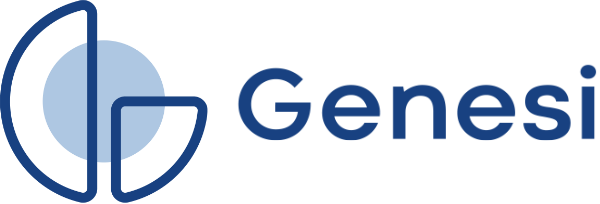Data Science: opportunities and face challenges

The Evolving Landscape of Data Analytics Roles
In the rapidly advancing domain of data science, the lexicon for data analysis professionals continues to expand, reflecting the multifaceted nature of this field. The evolution of technology, methodologies, and the paramount role of data in strategic decision-making across sectors have given rise to a plethora of specialized job titles. Below, we explore these modern terms, each signifying a unique blend of skills, focus areas, and contributions to data-driven insights.
General and Universal Roles:
- Data Analyst: A cornerstone role, essential for interpreting datasets and supporting decision-making processes.
- Data Scientist: Goes beyond analysis to develop predictive models and machine learning algorithms, requiring deep expertise in statistics and computer science.
- Business Intelligence Analyst: Specializes in deriving actionable insights from data to guide business strategies, utilizing reports and dashboards.
- Data Engineer: Ensures the seamless flow of data across systems, focusing on infrastructure and data management to facilitate analysis and insights.
Technical and Advanced Specializations:
- Machine Learning Engineer: Concentrates on the creation and implementation of machine learning models, with a keen focus on the technical aspects of deploying these models into production environments.
- Quantitative Analyst (Quant): Applies mathematical and statistical models, particularly in finance, to manage risks and uncover financial insights.
- Data Visualization Specialist: Transforms complex data into intuitive visual formats, making insights accessible to a broader audience.
Emerging and Niche Focuses:
- Data Wrangler: Emphasizes the critical task of data cleaning and preparation, laying the groundwork for insightful analysis.
- Knowledge Engineer: Engages in building knowledge graphs and ontologies, enhancing data manipulation and interpretation.
- Analytics Manager/Lead: Guides a team of analysts, strategizing on data utilization and ensuring that insights align with organizational objectives.
Domain-Specific Insights:
- Positions like Marketing Analyst, Healthcare Data Analyst, and Security Analyst underscore the importance of tailored analysis in understanding customer behaviors, improving healthcare outcomes, and enhancing cybersecurity measures, respectively.
Innovative Roles:
- Data Storyteller and Explainable AI (XAI) Specialist represent the cutting edge of data analytics, focusing on narrative-driven insights and the transparency of AI models.
As the field of data science progresses, these roles will continue to evolve, reflecting new technologies, methodologies, and the increasing significance of data across all aspects of society. The optimal title for a professional in this space will hinge on their specific skills, experiences, and the strategic goals of their organization.

Exploring Career Paths in Data Analytics: A Guide to Finding Your Fit
In the field of data analytics, there are several roles, each requiring specific skills and offering unique career paths. Choosing the right path depends on your individual skills, interests, and career goals. Here’s an overview of key roles in data analytics and advice on how to navigate your career choices:
1. Data Analyst
- Skills Required: Proficiency in statistical analysis, data visualization, SQL, and basic use of data analysis tools like Excel, Tableau, or Python/R for data manipulation.
- Responsibilities: Analyzing data sets to identify trends, performing statistical analysis, and creating reports to help organizations make informed decisions.
- Career Advice: Ideal for those who love working with numbers, have strong analytical skills, and enjoy communicating findings through compelling visualizations.
2. Data Scientist
- Skills Required: Advanced statistical analysis, machine learning, deep learning, programming in Python or R, data wrangling, and familiarity with big data technologies.
- Responsibilities: Developing complex models to predict trends or behaviors, working with large and unstructured data sets, and creating algorithms to extract insights from data.
- Career Advice: Suited for individuals with a strong foundation in mathematics and statistics, who are also interested in programming and building predictive models.
3. Data Engineer
- Skills Required: Proficiency in database management, SQL, Python, cloud services (e.g., AWS, Google Cloud, Azure), and big data technologies (e.g., Hadoop, Spark).
- Responsibilities: Designing, building, and maintaining the architecture of data systems, ensuring the data flow between servers and applications is smooth and scalable.
- Career Advice: Best for those who enjoy problem-solving in complex systems, have a good understanding of software engineering principles, and like to ensure the infrastructure supports data needs.
4. Business Intelligence Analyst
- Skills Required: Strong in data analysis and visualization tools, understanding of business processes, SQL, and reporting tools.
- Responsibilities: Transforming data into actionable insights that inform business decisions, creating dashboards and reports that track key business metrics.
- Career Advice: Ideal for individuals with an interest in business and data who are keen to bridge the gap between data analytics and business strategy.
5. Machine Learning Engineer
- Skills Required: Deep knowledge of machine learning algorithms, programming (Python, R), data modeling, and software engineering best practices.
- Responsibilities: Designing and implementing machine learning applications, improving data algorithms, and working closely with data scientists to deploy models into production.
- Career Advice: Suitable for those who have a passion for AI and machine learning, with strong programming skills and an interest in developing applications based on predictive models.
Choosing the Right Path
- Assess Your Interests: Are you more interested in the technical aspects, such as building and deploying models, or do you prefer analyzing data to drive business decisions?
- Evaluate Your Skills: Consider your current skill set and what you might need to learn or improve. Each role requires a different mix of technical and soft skills.
- Consider Career Goals: Think about where you see yourself in the future. Do you aspire to lead projects, focus on technical innovation, or work closely with business stakeholders?
- Gain Experience: Hands-on experience through internships, projects, or online courses can provide valuable insights into what each role entails and help refine your interests and skills.
Remember, the field of data analytics is dynamic, and roles can often overlap. It’s also common for professionals to transition between different roles as they gain experience and refine their interests.

Industry-Specific Data Science Roles
In the dynamic field of data science, professionals across various industries seize opportunities and face challenges unique to their sectors. Leading companies often create specialized roles that reflect the specific needs and strategic goals of their industry. Below are examples of such roles, showcasing how different sectors leverage data science expertise:
1. Technology and Software
- Data Scientist, Machine Learning Operations (MLOps): Focuses on the operationalization of machine learning models, ensuring they can be deployed efficiently and reliably at scale.
- AI Research Scientist: Works on cutting-edge artificial intelligence projects, developing new algorithms and technologies that can be applied to product innovation.
2. Finance and Banking
- Quantitative Analyst (Quant): Applies mathematical and statistical models to financial data to inform investment strategies, risk management, and pricing models.
- Data Scientist, Fraud Detection: Specializes in analyzing transaction data to identify patterns indicative of fraudulent activity, enhancing security measures.
3. Healthcare
- Biostatistician: Applies statistical principles to medical and public health research, aiding in the development of clinical trials and the analysis of health data.
- Health Data Scientist: Focuses on analyzing health-related data to improve patient care outcomes, operational efficiency, and personalized medicine approaches.
4. Retail and E-Commerce
- Customer Insights Analyst: Analyzes customer data to uncover buying patterns, preferences, and trends to drive sales strategies and improve customer experiences.
- Supply Chain Data Scientist: Uses data analytics to optimize supply chain processes, from forecasting demand to improving inventory management.
5. Manufacturing
- Industrial Data Scientist: Applies data science to improve manufacturing processes, product quality, and operational efficiency through predictive maintenance and optimization models.
- Data Scientist, Quality Control: Focuses on analyzing production data to identify factors that affect product quality, aiming to reduce defects and improve consistency.
6. Energy
- Renewable Energy Analyst: Utilizes data science to optimize the production, distribution, and consumption of renewable energy sources.
- Data Scientist, Oil & Gas Exploration: Analyzes geological data to predict the location of oil and gas reserves and improve extraction methods.
7. Transportation and Logistics
- Data Scientist, Route Optimization: Develops algorithms to optimize delivery routes, reducing costs and improving delivery times.
- Data Analyst, Fleet Management: Uses data analytics to improve fleet operations, including maintenance scheduling, fuel efficiency, and driver performance.
8. Media and Entertainment
- Content Analytics Manager: Analyzes viewer data to inform content creation and distribution strategies, aiming to maximize engagement and subscription growth.
- Data Scientist, Recommendation Systems: Develops algorithms to personalize content recommendations, enhancing user experience and retention.
Each of these roles highlights how data science is integral to solving industry-specific challenges and capitalizing on opportunities. By tailoring data science positions to their unique contexts, companies across sectors can drive innovation, efficiency, and growth.

Well, now let’s speak to the devil’s advocade
Hiring individuals for roles in data analytics who lack the necessary skills or experience can pose significant risks and challenges to organizations. These challenges can impact not just the immediate team but can have ripple effects across the company. Here’s a look at some of the potential problems and how they might jeopardize investments in new hires for these critical and evolving roles:
1. Misalignment with Business Goals
- Issue: Individuals without a clear understanding of how their role aligns with business objectives may focus on tasks that do not contribute to the organization’s goals, leading to wasted resources and missed opportunities.
- Impact: Strategic misalignments can delay project timelines and result in outputs that do not meet business needs.
2. Inefficient Data Management
- Issue: Lack of experience in managing and structuring data can lead to inefficient data practices, such as poor data quality, incorrect data analysis, and data security vulnerabilities.
- Impact: This can compromise the integrity of data insights and lead to flawed decision-making, affecting the company’s strategic direction and reputation.
3. Slow Adoption of Best Practices
- Issue: New hires without sufficient experience may not be familiar with industry best practices in data analytics, leading to suboptimal processes and methodologies.
- Impact: This can slow down innovation, reduce competitiveness, and increase the time to market for data-driven products or insights.
4. Difficulty in Scaling Projects
- Issue: Individuals new to data analytics roles may struggle with scaling projects effectively due to a lack of experience in handling large datasets or complex data infrastructures.
- Impact: Projects may overrun budgets, exceed timelines, or fail to deliver expected outcomes, impacting ROI and operational efficiency.
5. Reduced Team Morale and Productivity
- Issue: Hiring underqualified individuals can place additional burdens on more experienced team members, who may need to compensate for gaps in knowledge and skills.
- Impact: This can lead to reduced morale, increased workload, and burnout among team members, negatively affecting overall team productivity and cohesion.
Mitigating Risks
To minimize these risks, companies can take several proactive steps:
- Comprehensive Onboarding and Training: Invest in structured onboarding processes and ongoing training programs to upskill new hires and align their skills with company needs.
- Mentorship Programs: Pair inexperienced hires with seasoned professionals who can provide guidance, share best practices, and facilitate knowledge transfer.
- Regular Performance Evaluations: Implement a system of regular check-ins and evaluations to assess progress, address gaps, and adjust roles and responsibilities as needed.
- Flexibility in Role Definition: Be open to evolving roles and responsibilities as individuals grow into their positions and as the needs of the organization change.
- Cultivating a Learning Culture: Encourage a culture of continuous learning and curiosity, where experimentation is welcomed and failure is viewed as an opportunity for growth.
In conclusion, while hiring for roles in the rapidly evolving field of data analytics presents unique challenges, thoughtful approaches to recruitment, training, and development can mitigate risks and maximize the contributions of new hires to the organization’s success.
Furthermore, in complex contexts, roles are often nuanced and complementary and, as in all group activities, harmony and team spirit are fundamental and are always the key to success.




